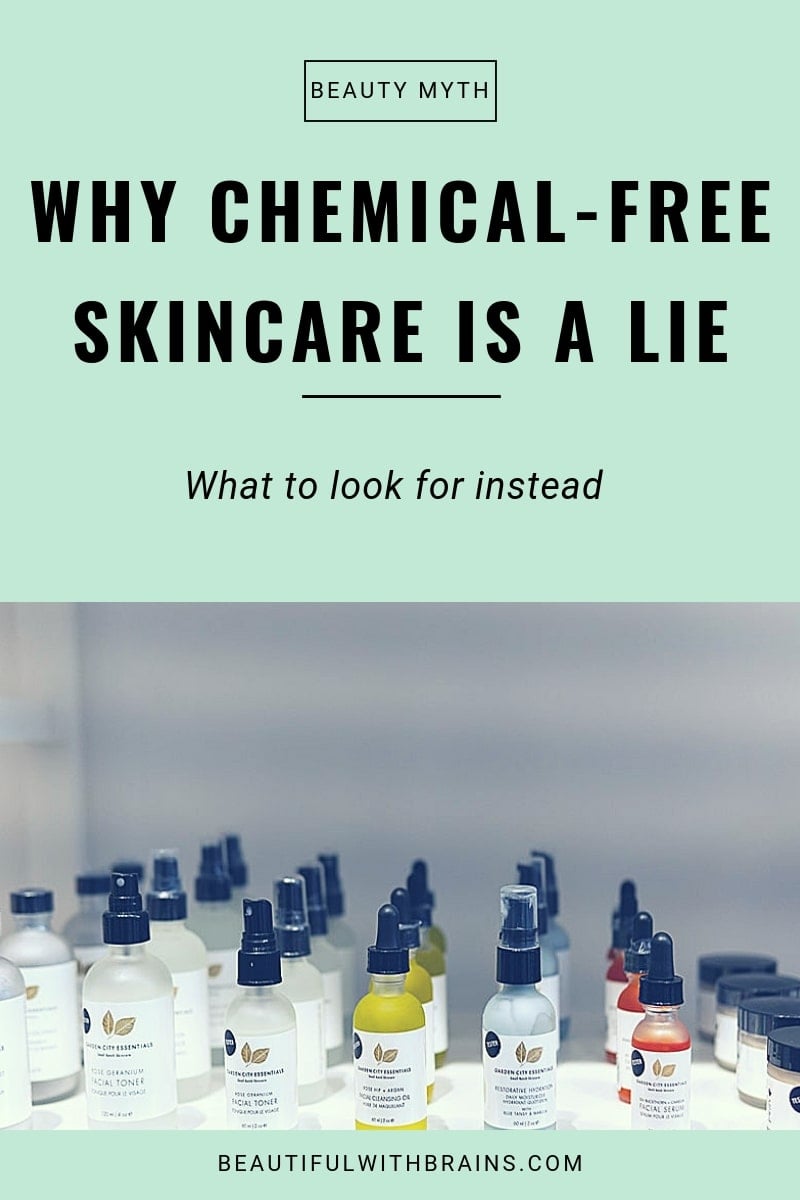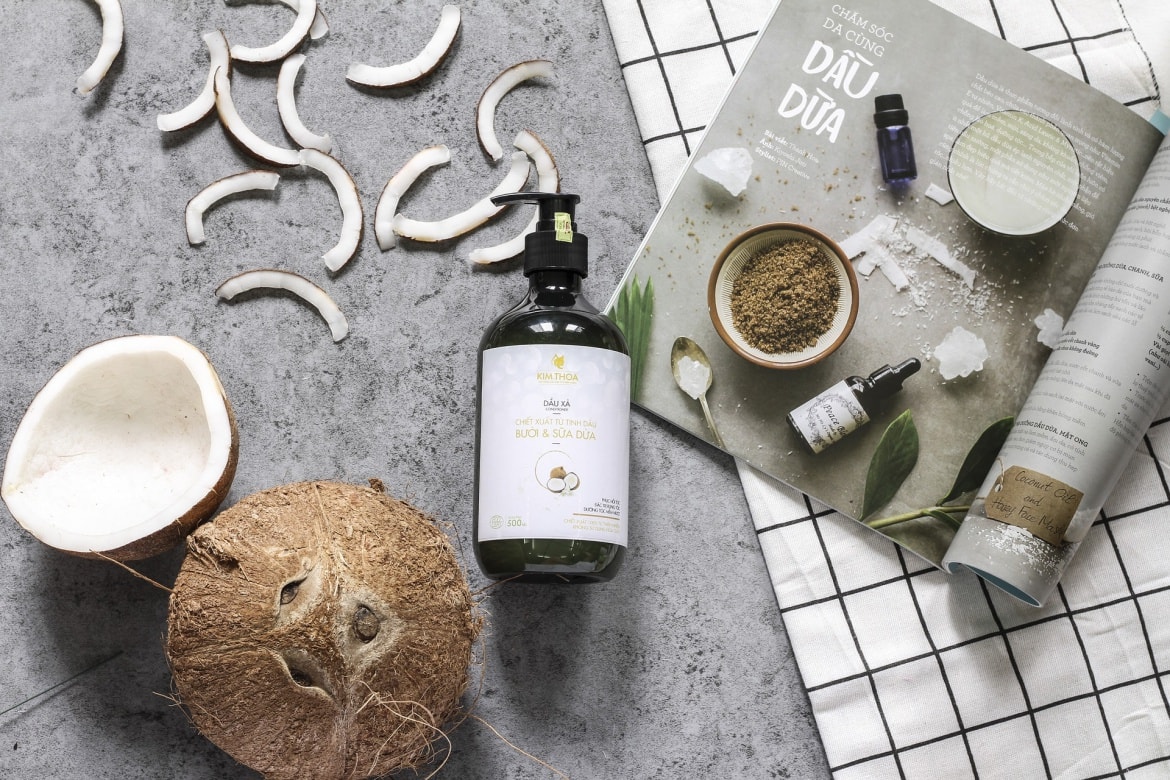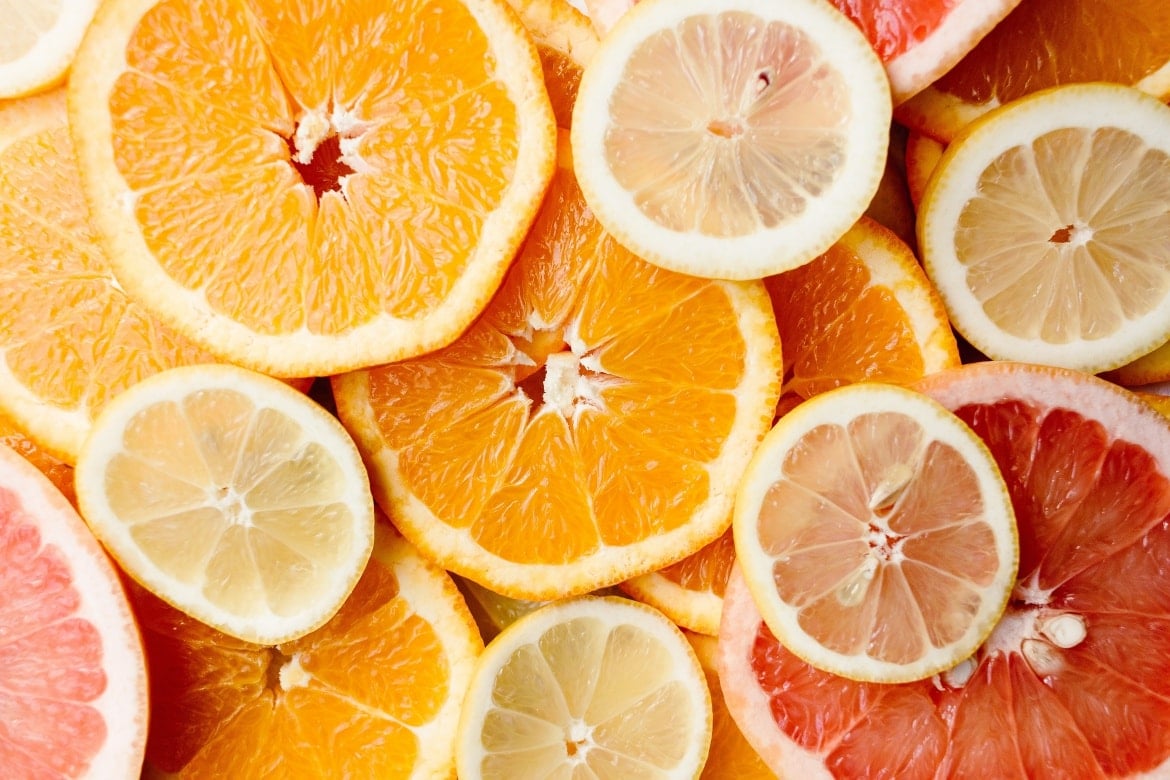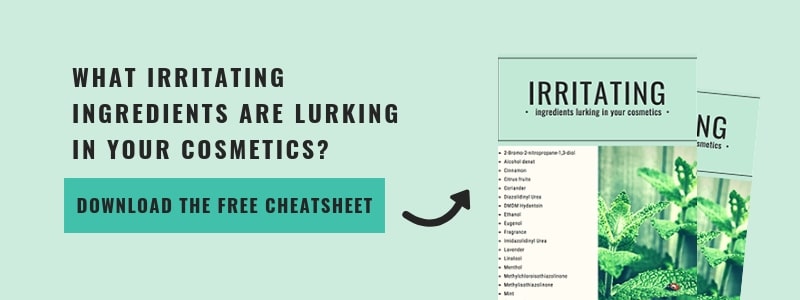Are you on the hunt for chemical-free skincare products?
I have bad news for you: there’s NO such thing.
Huh? Let me explain…
What YOU Think Chemical-Free Skincare Means
I get it. You don’t want harsh chemicals in your skincare.
Like Sodium Lauryl Sulfate, a cleansing agent that’ll turn your skin drier than the Sahara. Or fragrance. If you have sensitive skin, you know that’s a surefire recipe for irritation.
Then, there’s the stuff you’ve heard is bad for you. Like parabens. Silicones. Propylene glycol. They’re all totally safe – science says so – but I know some of you prefer to use more natural alternatives. That’s totally cool.
Whatever the reason, how do you know where these unwanted ingredients lurk? Like, are you supposed to check out every single label to make sure they’re out of the way?!
Chemical-free makes it easy. It makes you think the product’s all natural, that no chemicals are in it, that you can just pick it off the shelf without checking the label.
IT’S A LIE.
Related: 7 Ingredients With An Undeserved Bad Reputation
What Chemical-Free Skincare Really Means
Here’s the deal: anything that occupies space and has mass is matter. And everything that is made of matter is a chemical.
Water is a chemical (H2O, remember?). The food you eat is made of chemicals (vitamin C, vitamin E, beta-carotene etc). The plate your food is served in is made of chemicals.
Plants are made of chemicals. Heck, even us humans are made of chemicals that control literally everything we do and feel.
Your skincare products are made of chemicals too. The bottles and jars they’re housed in are made of chemicals. Even the boxes those bottles are shipping in are made of chemicals.
You know what this means: if you were to buy a moisturiser that were really 100% chemical-free, you’d buy a big fat bottle of NOTHING. Scratch that, there wouldn’t even be a bottle!
Related: Why You Should Avoid Skincare Packaged In Jars
Are “Chemical-Free” Skincare Products Better For Skin?
Ok, so “chemical-free” is just another marketing lie. 🙄
I don’t like it when brands use this term because it either means they’re happy to lie to their customers to get their money or they honestly have no clue how science works – and if they have no clue, how the heck can they formulate good products that work?!
But products that sport “chemical-free” on the label do tend to be more natural – so are they better and safer for your skin?
NO. Just because an ingredient is natural, it doesn’t mean it’s safer.
Here’s the deal: plants are made up of lots of different substances. Some of them (think antioxidants) are good and help the plant live longer and your skin stay younger.
Others are toxins (think fragrance) the plant uses to keep predators away so they won’t be eaten. These are irritating as hell.
Take chamomile, for example. It’s bisabobol that makes it so soothing. But bisabobol is just one ingredient in chamomile. This plant also contains allergens that give a bad reaction to everyone that is allergic to any plant in the daisy family.
Or essential oils. They have moisturising and soothing properties but their beautiful, heavy fragrance makes them a total no-no – unless you want to develop allergies and irritations along the way.
And don’t even get me started on pollen and other natural allergens that can end up in your skincare. Do you seriously think it’s a coincidence so many of you are developing sensitivities after switching to natural skincare products?!
Compare that to mineral oil. People make such a fuss about it because it derives from oil. BUT it undergoes a strict purifying process – in a sterilised environment – that removes ALL toxins.
The end result is made of only a handful of safe, non-irritating chemicals. That’s much safer than essential oils for you skin. Yes, really.
Related: Spotlight On Chamomile: Is It Good Or Bad For Skin?
It’s The Dose, Not The Origin, That Makes The Poison
I’m not trying to convince you to ditch natural skincare and go for mineral oil instead. I get it lots of you prefer to stay away from it and that’s cool.
My point is that natural doesn’t equal safe and man-made (what you really mean when you say chemical-free) doesn’t mean harmful.
Again, take chamomile. What soothes your skin is not the flower itself, it’s bisabobol. It’s a chemical and you can make it in a lab.
If you’re allergic to any plant in the daisy family, you can’t have chamomile extract in your skincare. But you can totally have synthetic bisabobol. It does the same thing but without the irritation.
Another example? Vitamin C. A little vitamin C helps you fight wrinkles and fade away dark spots. But ingest too much vitamin C and you’re heading to the hospital. A high dose of vitamin C is toxic for you.
Here’s the deal: it doesn’t matter if an ingredient is natural or man-made. What matters is how much of it you use. Or, as scientists says, it is the dose that makes the poison.
Natural skincare is still skincare. If you use the wrong ingredients, get the dose wrong or don’t formulate it properly, it can still dry out your skin or irritate it.
Shop My Fave Natural Skincare Products
If Chemical-Free Is A Lie, What Should You Look For Instead?
Sorry, ladies. You can’t rely on “chemical-free” to know if your skincare products are safe. You need to check the label.
If you know that you’re allergic to an ingredient, don’t like the idea of using silicones or want your skincare to be as natural as possible, take a look at the ingredient list.
FYI, if you want to learn to read ingredient lists like a pro, check out my guide here.
Getting to know your skincare ingredients and what they can do for your skin also helps. Remember, just because something is natural doesn’t mean it’s good for you. Do your research carefully.
Want to know what ingredients you should really avoid in skincare? Click on the image below to subscribe to my newsletter and receive the “Irritating Ingredients Cheat Sheet” with the most irritating ingredients lurking in your cosmetics:
What's Lurking In Your Cosmetics?
Sign up to receive a list of the most irritating ingredients lurking in your beauty products.
Related: How To Read An Ingredient List Like A Pro (Even If You Hate Science)
The Bottom Line
Chemical-free skincare is a lie. If your skincare products were really free of ALL chemicals, they wouldn’t even exist! If there’s anything you don’t want in your skincare products, check the label to make sure it’s not there.
What do you think of the chemical-free skincare myth? Share your thoughts in the comments below.






Great post. I am also sick of brands stating they are Clean, or the product is Clean, there is no definition to measure this on anyway. I hate when people say products that are not clean are full of harsh chemicals. It really gets annoying.
Jeff, I agree. It’s all marketing nonsense. *sighs*
Dear, Gio!
I’ve recently found out about your blog and I became a little bit… well… let’s say obsessed 😀 You are providing your readers with lot of useful information and thank you for that. 🙂
Since I don’t live in UK (like you do, as I understood from reading your blog), the products you are suggesting are hard to find in my country. Therefore, I would be very grateful if you could tell us your opinion about Balea products (German brend) which are widespread and could be found at favorable price.
I will link you the examples of 3 products that I use often and with modest ingredients knowledge I would say they are good and do the job.
Dear Gio, what would be your opinion about those products?
– http://www.cosdna.com/eng/cosmetic_4af8277292.html
– http://www.cosdna.com/eng/cosmetic_7216152906.html
– http://www.cosdna.com/eng/cosmetic_0e5f184203.html
Thank you so much in advance and I would be soooo hapy to see your reply.
Love ya
Vana, thank you so much for your kind words. So glad to know my blog helps. 🙂
They’re good but basic products. They provide lots of hydration, so if that’s what you’re after, go for them. But they don’t have antiantiaging benefits so if you want to fight wrinkles, you’ll have to supplement with something else.
When you say hydration do you mean moisturize in the same time? I would say Balea aqua serum (2nd link) has humectants as well as occlusive emollients, or I am wrong?
Thank you so much in advance <3
Vana, there’s really not much difference between the two terms. But yes, it has both humectants and occlusives.
Great article! Hopefully people read it and GET IT.
Barbara, thank you. I hope so too.